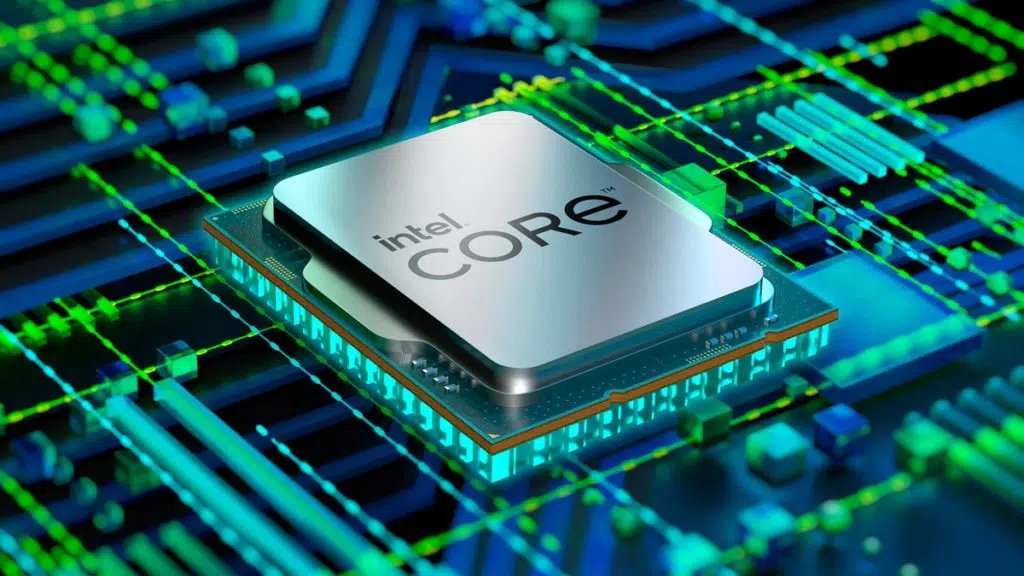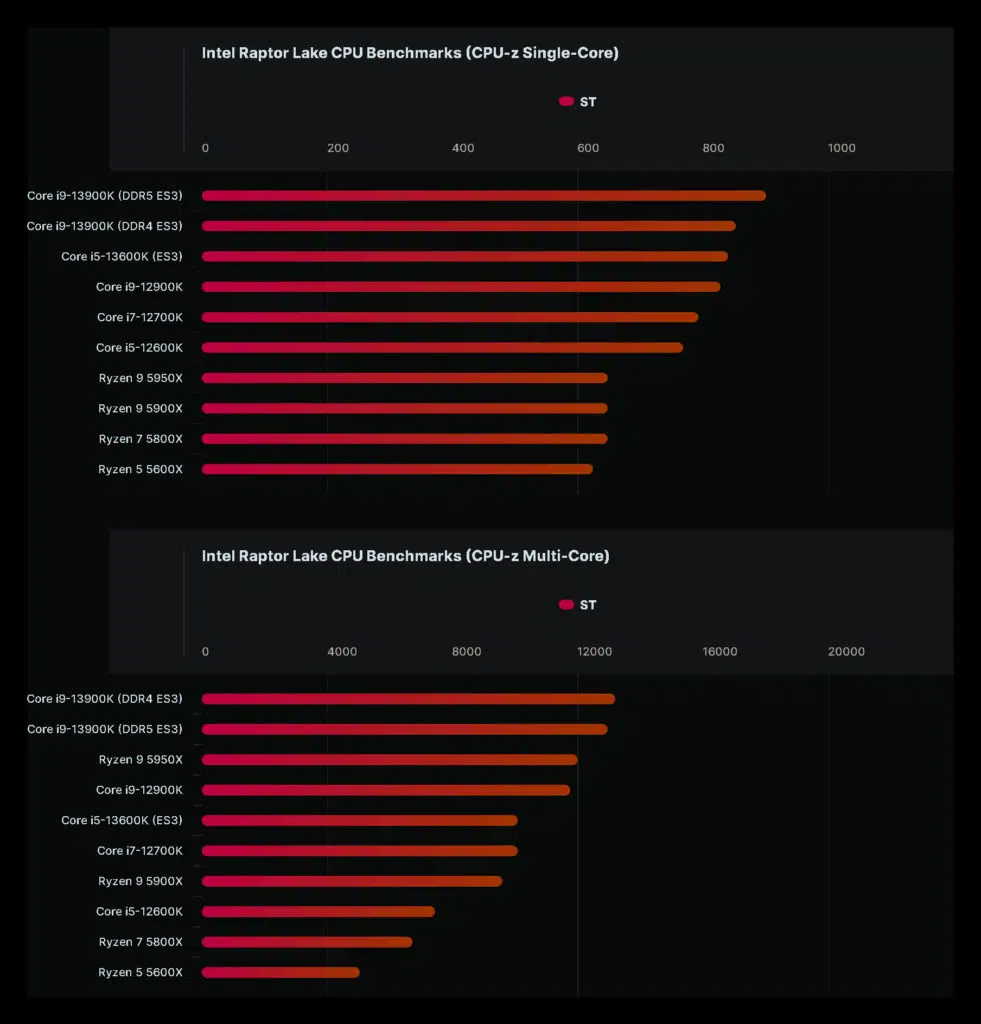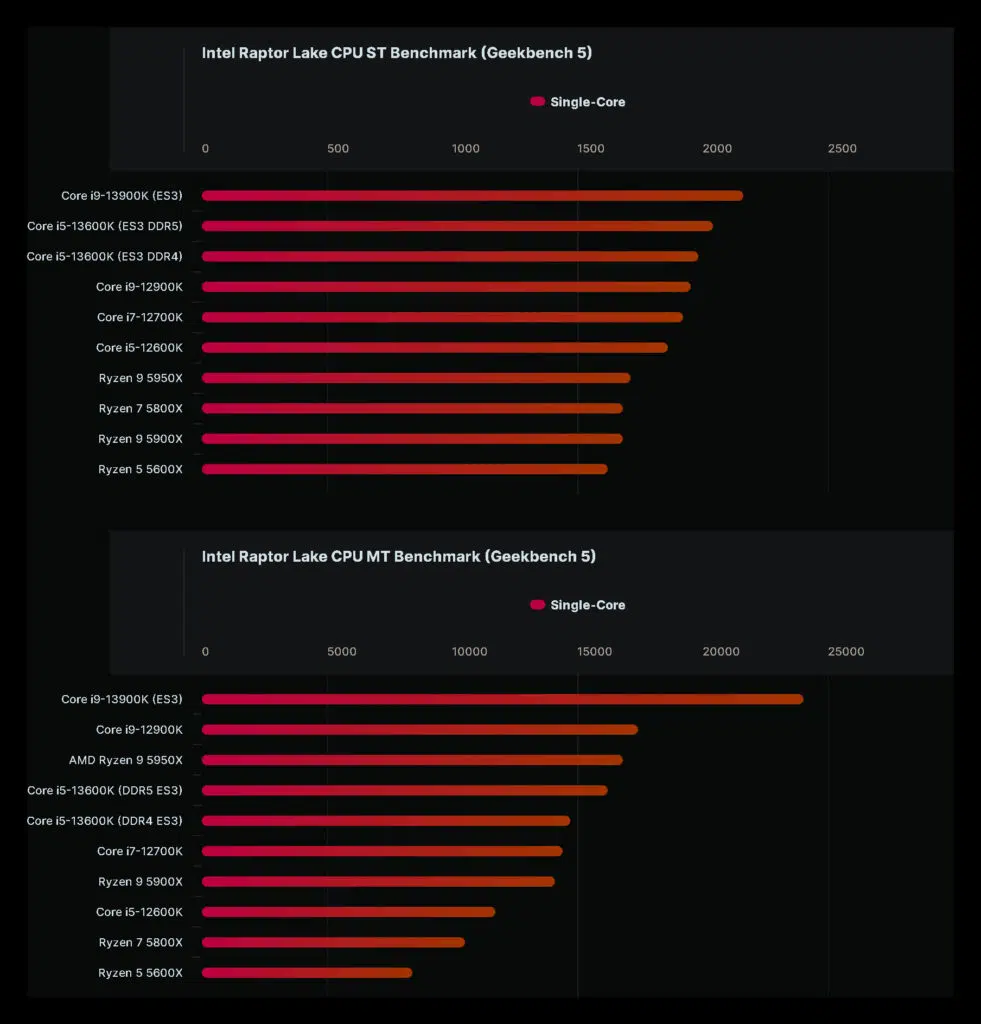
Early benchmarks for some of Intel’s upcoming “Raptor Lake” processors continue to surface, and the results are lovely.
One benchmark involves an engineering sample of a 13th Gen Intel Core i9-13900K (8 P-Cores, 16 E-Cores) processor running in CPU-Z on an MSI PRO Z690-A motherboard coupled with 32 GB of DDR4-2666 memory. This chip managed to score 846 points and 13,054 points in the single-core and multi-threaded tests, respectively.
That’s a healthy increase of “12% versus the Core i9-12900K and a 10% increase over the AMD Ryzen 9 5950X,” according to comparisons drafted by Wccftech.
The other benchmarks involve an engineering sample of a 13th Gen Intel Core i5-13600K (6 P-Cores, 8 E-Cores) processor paired with ASRock Z690 Steel Legend WiFi 6E (likely the DDR4 version) and ASUS ROG Maximus Z690 Extreme (DDR5) motherboards on Geekbench.
They show “up to 2,012 points in single-core and up to 16,054 points in multi-core tests,” which would make the new CPU “up to 97% faster than the Ryzen 5 5600X and up to 38% faster than the Core i5-12600K,” according to further comparisons shared by Wccftech.
Even in single-core, the chip is faster than all of AMD’s Ryzen 5000 Zen 3 lineup, delivering a 25% uplift in single-threaded performance versus the Ryzen 5 5600X and an 8.5% improvement over its predecessor, the Core i5-12600K. The CPU comes close to the Ryzen 9 5950X in multi-core performance and beats the Core i7-12700K easily.
Intel is expected to launch its first 13th Gen Core “Raptor Lake” processors and premium Z790 platform in October. AMD’s Ryzen 7000 Series processors and all-new AM5 platform should also surface around the same time.


